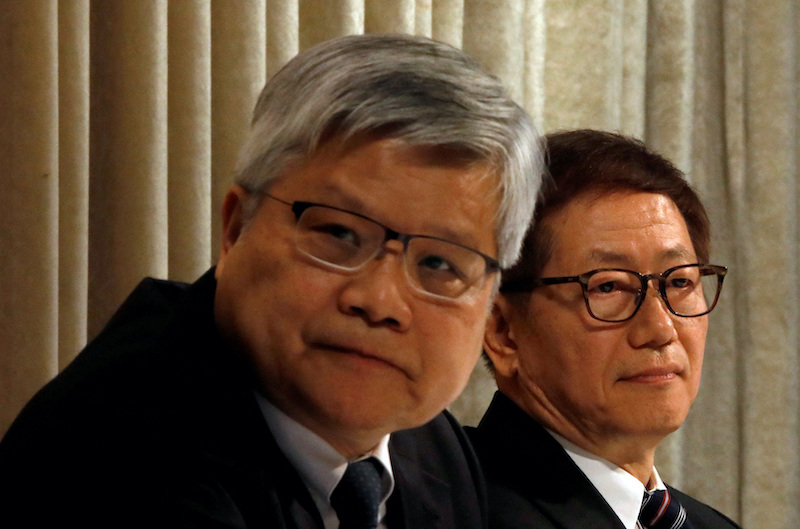China’s biggest private developer confirmed on Tuesday that it failed to pay two dollar bond payments due last Sunday, August 6.
Country Garden has 30-day grace periods in which to pay the bond coupons, reportedly worth a total of $22.5 million.
The bonds in question are notes due on February 2026 and August 2030, investors said, citing prospectuses.
China’s giant property sector has seen a string of debt defaults by cash-squeezed developers since late 2021, with China Evergrande Group, the world’s most indebted property developer, at the centre of the crisis.
ALSO SEE: Multiple Moves Needed to Defuse China’s Local Debt Crises
Country Garden, which had total liabilities of 1.4 trillion yuan ($194 billion) as of end-2022, said in a statement its usable cash had declined due to a deterioration in the sales and refinancing environment, and the impact from various fund regulations.
Stocks and bonds of the Guangdong province-based company, ranked third by national sales this year, have faced selloff pressure in the past few weeks as liquidity concerns resurfaced.
One of the firm’s onshore bonds was temporarily suspended from trading in Shenzhen after plunging 28.6% in the morning.
Its January 2024 dollar bonds were traded at 18.331 cents on the dollar, according to Duration Finance, down from 25 cents on Monday.
The company’s shares shed 14.4% by the close of trading in Hong Kong today.
Last week, Country Garden aborted a $300-million share placement at the last minute saying it had not reached a ‘final agreement’ for the deal to go ahead.
The home builder also warned last week that it would post an unaudited net loss for six months ending June 30, compared with a net profit of 1,910 million yuan ($267 million) a year earlier.
State developers seen getting more support
Meanwhile, investors are betting that China’s battered property sector will recover – but are favouring the stocks and bonds of state-backed firms that are more likely to benefit from government support, market participants said.
The hugely leveraged sector has been gutted by three years of measures aimed at curbing speculative price rises and reducing developer debt, and has seen a string of major names defaulting on bonds or otherwise in dire financial straits.
Last month, however, the Politburo signalled change to real estate policy, and the People’s Bank of China pledged reasonable financing for developers and lower mortgage rates. Some cities, such as Zhengzhou, have started easing property market curbs.
For wary investors keen to return to a sector that accounts for a quarter of the economy, state-owned developers may offer government endorsement and better access to cheap funding.
Such sentiment is reflected in markets. Hong Kong’s price index of mainland developers – composed mainly of private firms – has fallen almost 30% this year. China’s more mixed domestic real estate benchmark is down 13%.
State-owned developers including Yuexiu Property and China Resources Land are trading at a price-to-earnings ratio of eight, whereas some private developers such as Country Garden Holdings are trading at less than two.
The bonds of some private developers such as Country Garden and CIFI Holdings are rated below investment grade.
“Developers that are either state-owned, or investment-grade rated, or those that are owned by or associated with local financial institutions will be the ones that are able to borrow long-term, cheap financing,” Jenny Zeng, chief investment officer for Asia fixed income at Allianz Global Investors, said.
Investors have taken a dim view of the private sector. Short interest in Asian real estate – mostly private Chinese property firms – has been rising since April, with shares loaned as a proportion of market capitalisation hitting 0.75% in July, showed data from S&P Global Market Intelligence.
Country Garden topped the list of most-heavily borrowed stock for short-selling, the data showed.
Wai Mei Leong, fixed income lead portfolio manager at Eastspring Investments, said her fund only buys into very high-quality property firms which are either government-owned or have a government policy objective.
State developers’ market share nearly doubles
Lower debt and better financing have helped state-owned enterprises (SOEs) gain market share. They have historically generated around one-third of property sales but that share has risen in recent years to about 59%, Capital Economics estimates.
The top five developers by sales in the first half year were state-backed, showed data from China Real Estate Information Corp. Long-time leader Country Garden was sixth.
The share prices of state-backed firms such as Poly Developments have outperformed the CSI 300 real estate index. Country Garden stock has slumped more than 80% since mid-2021.
Guangzhou local government-backed Yuexiu has seen its five-year bond due January 2026 bounce back to about 92 cents on the dollar from a trough of 60 cents in November. The offshore five-year bond of private firm CIFI, due October 2025, is around 8 cents.
“The latest property sales data for some of the performing non-SOE developers triggered fear that they would also need to default which sent shock waves through the market,” said Philip Meier, head of emerging market debt and multi-asset portfolio manager at Gramercy.
- Reuters with additional editing by Jim Pollard
NOTE: Further text was added to this report on August 8, 2023.
ALSO SEE:
China Property Crisis Intensifies, Cloud Over Country Garden
China’s Dalian Wanda May be Next Property Giant to Fall
China Evergrande Restructure Doubts After $81bn Loss Revealed
China Sees the Dawn of a New Era of Slower Growth
China Evergrande Debt Rejig Will Cost Billions, Could Still Fail
























